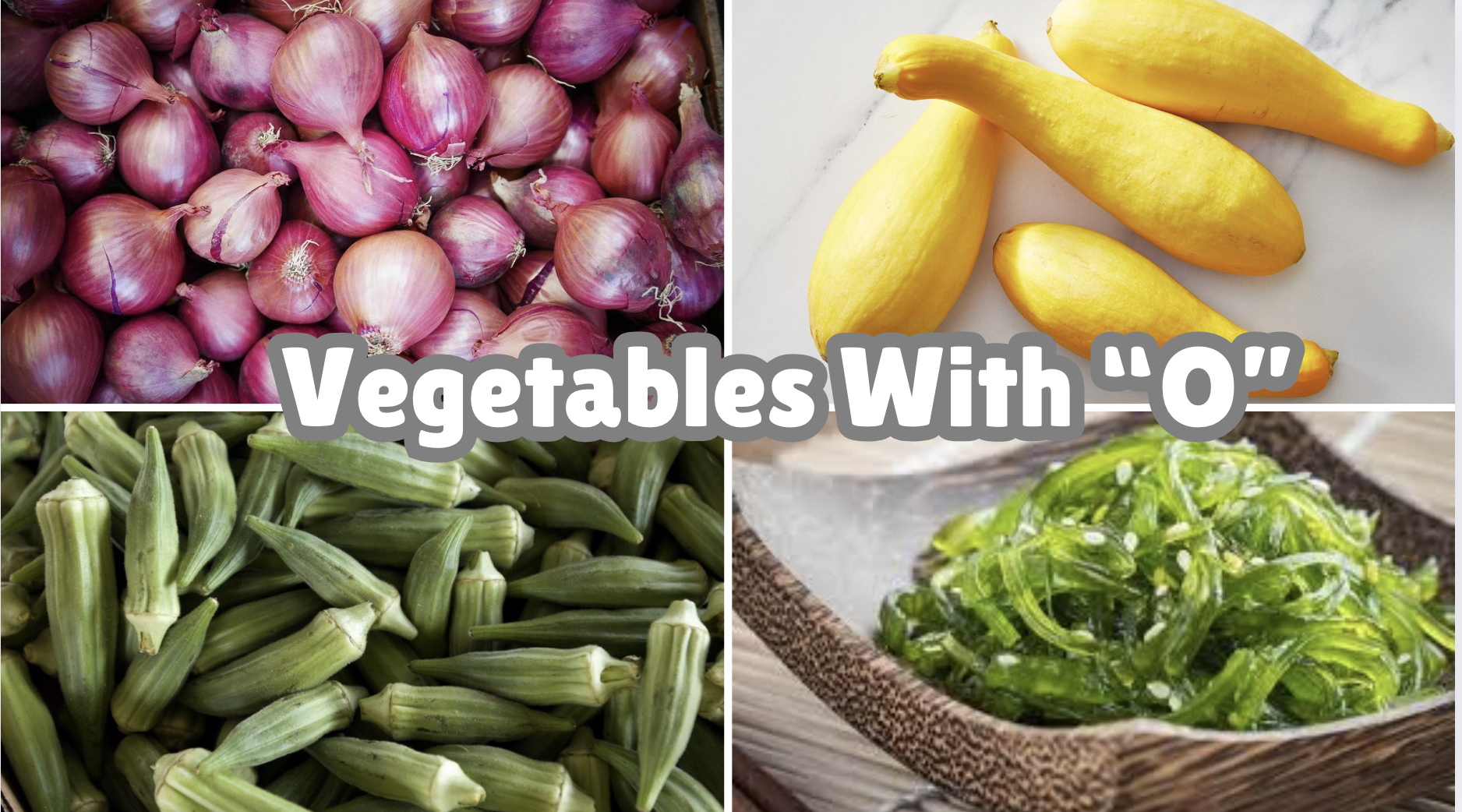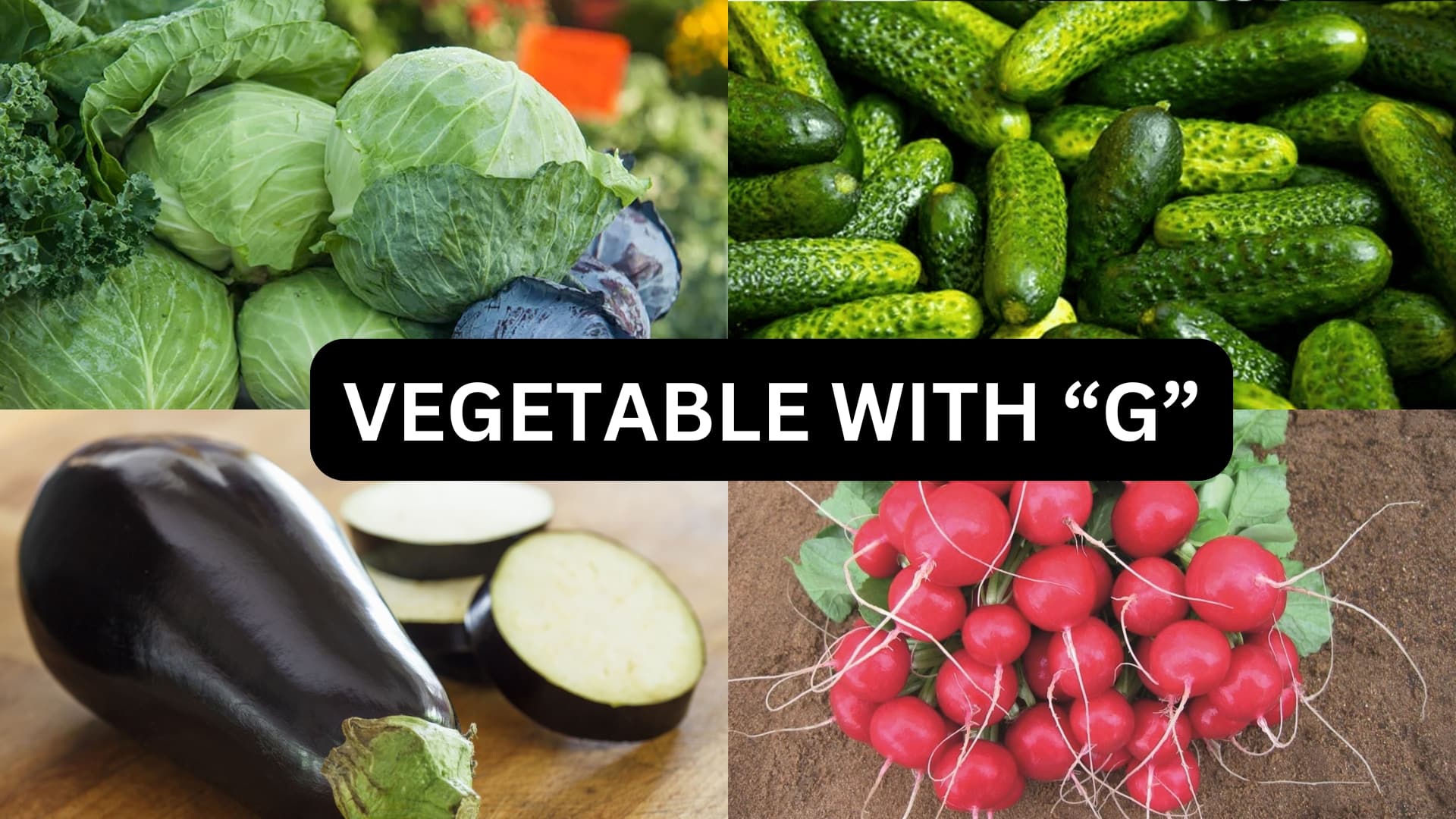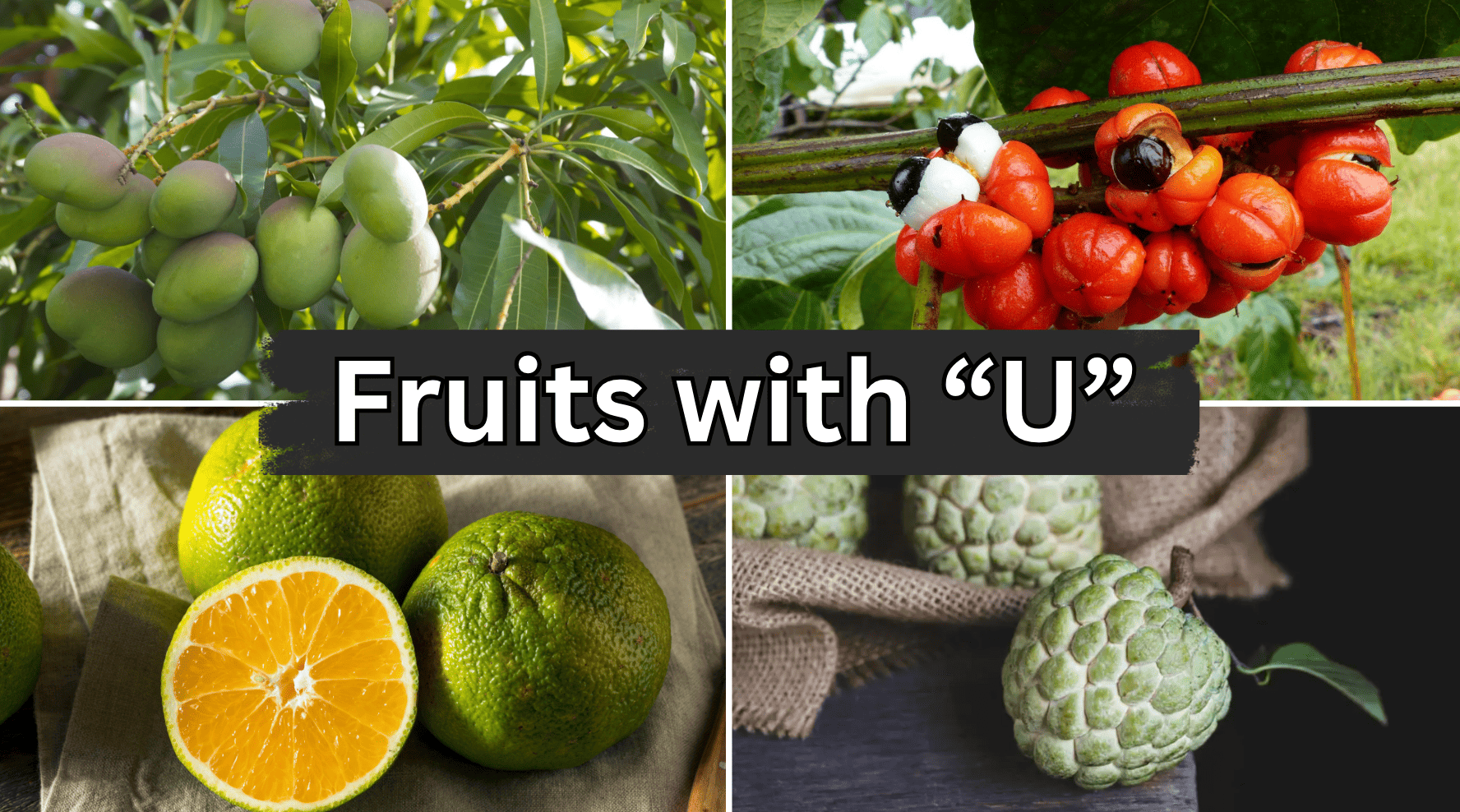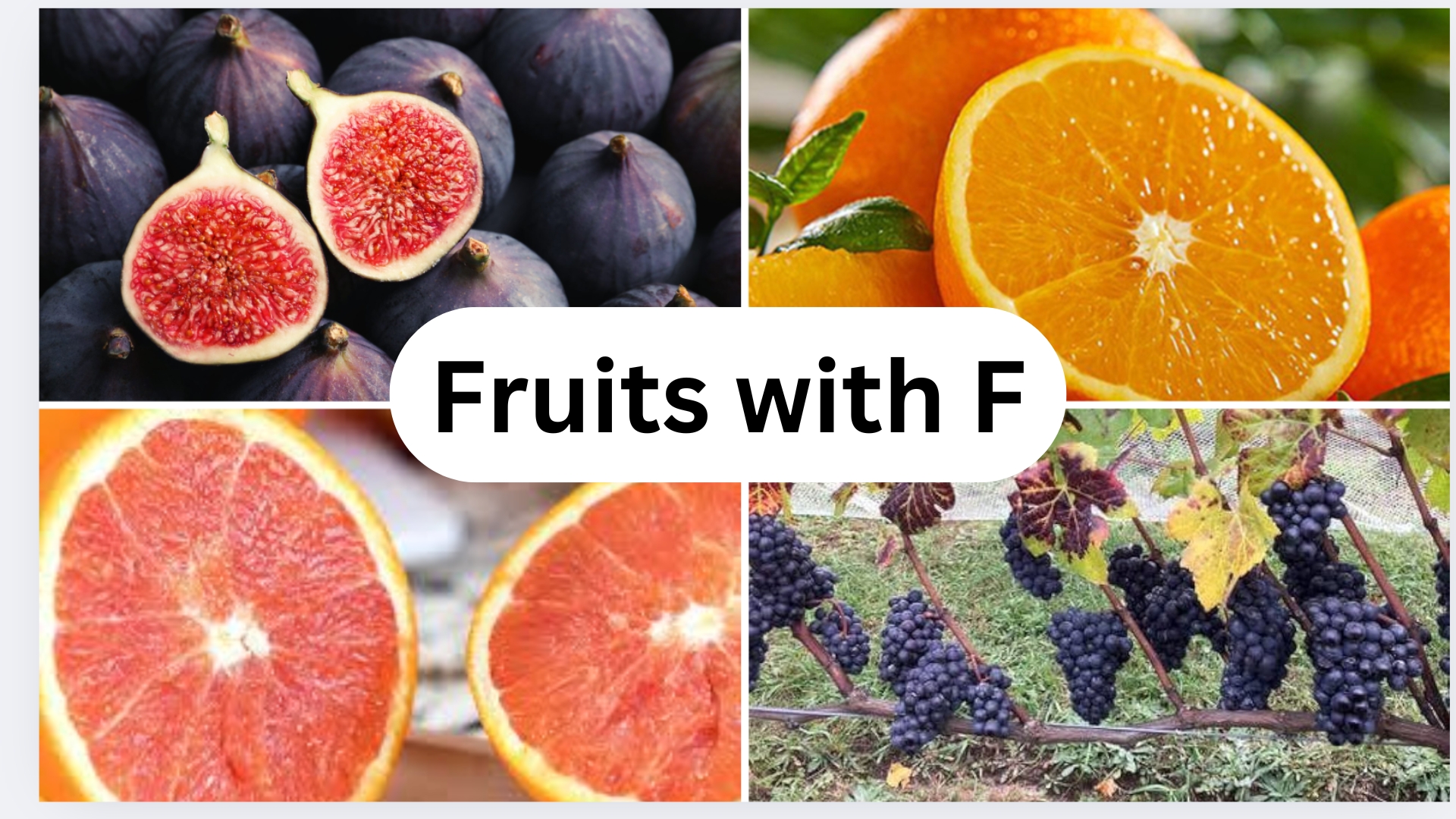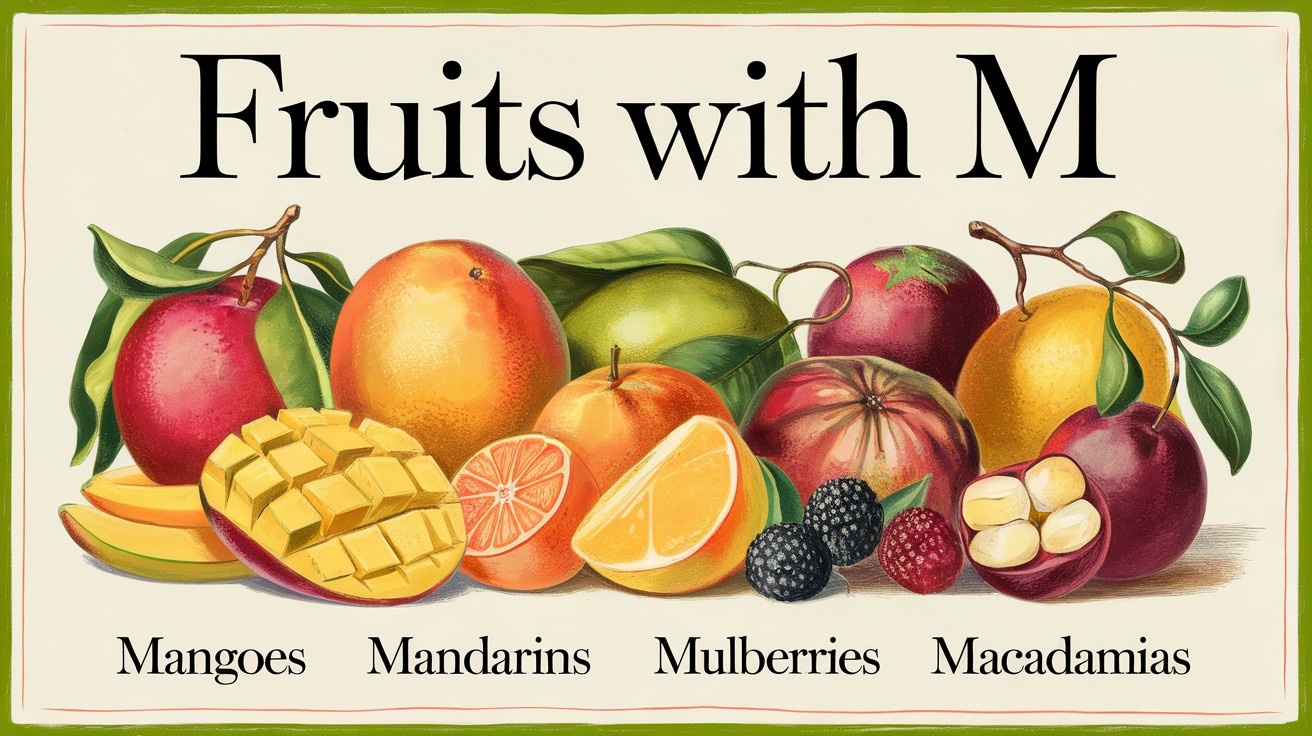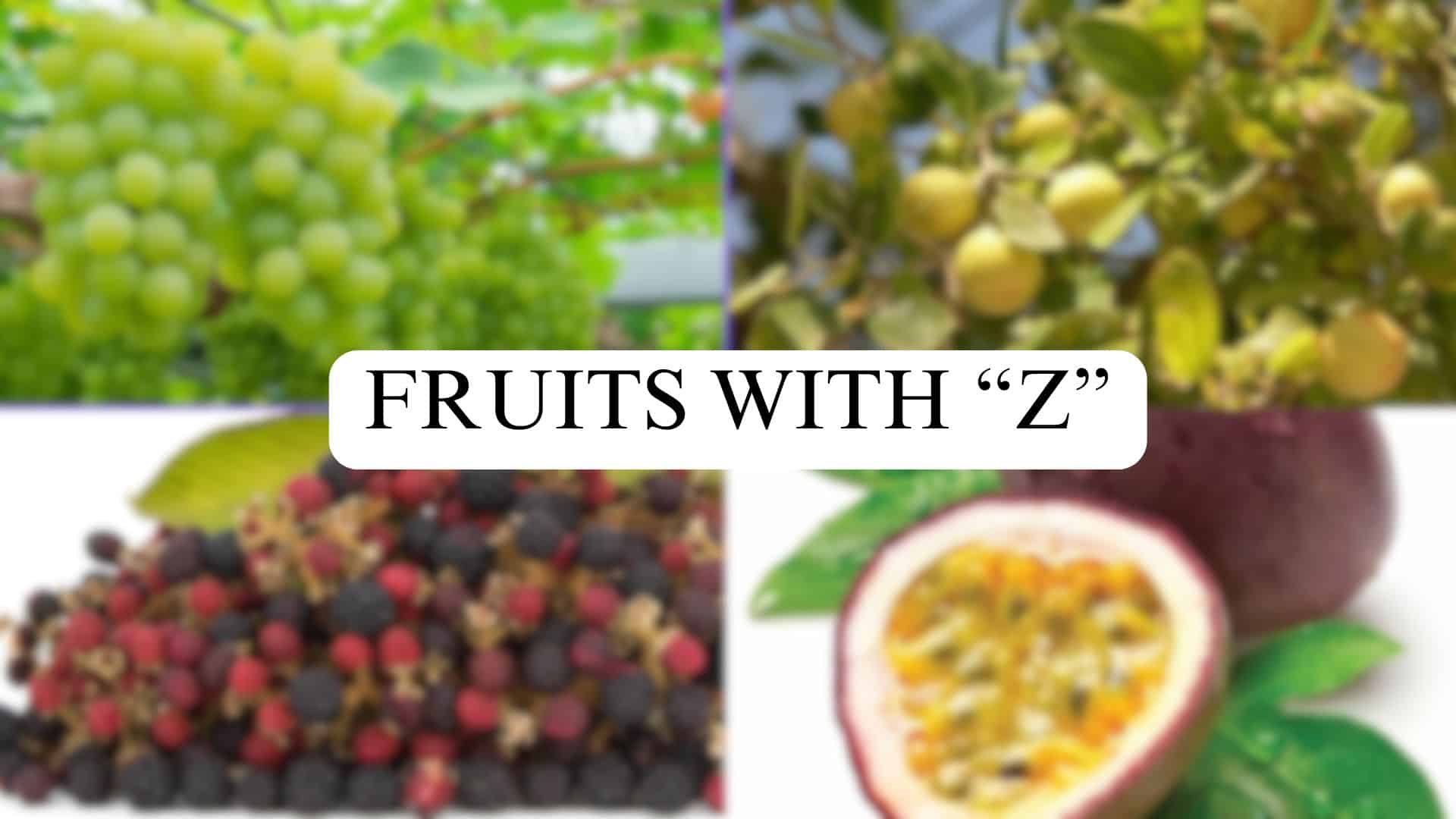
Have you ever tried the amazing fruits with Z that can make meals more colorful and tasty? From zucchini to Zill mangoes, these fruits grow in places all around the world.
Many people are unaware of fruits like Ziziphus (jujube) or Zapote, which offer great health benefits.
These fruits with Z are packed with vitamins and minerals that help keep the body strong. Some taste sweet, others are tangy, and a few even have spicy flavors.
Adding these colorful fruits to meals can make dishes look prettier and taste better.
Colorful Fruits with Z That Make Beautiful Dishes
1. Zucchini
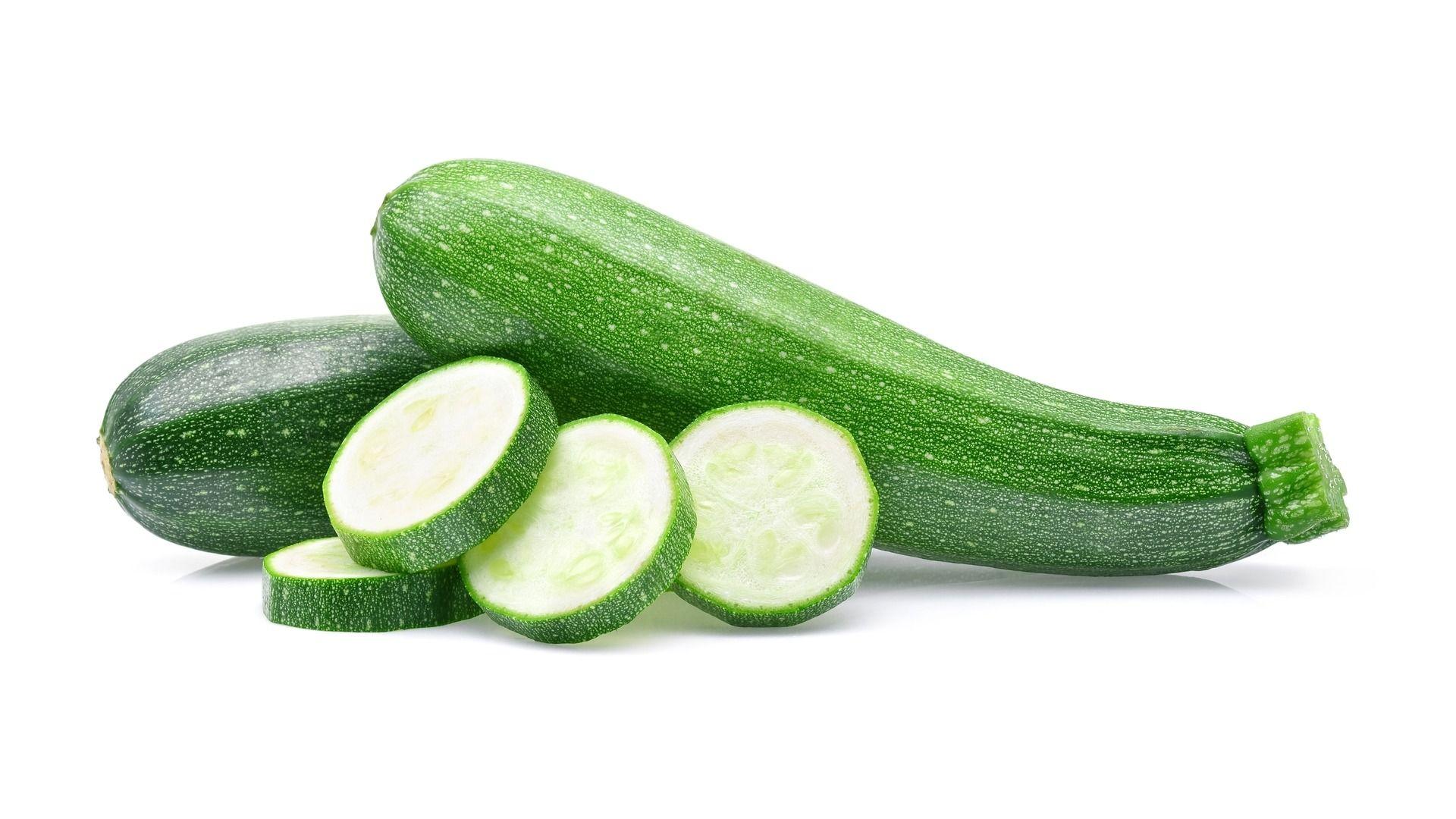
Origin: Native to North and Central America, particularly in Mexico and Central America.
Nutritional benefits: It is rich in Vitamin C, potassium, and fiber, which contribute to better digestion and immune support.
Flavor Profile: Mild and sweet, with a light and fresh taste that is subtle and versatile for both savory and sweet dishes.
2. Ziziphus Fruit (Jujube)

Origin: Native to China, where it has been cultivated for over 4,000 years.
Nutritional benefits: High in Vitamin C, antioxidants, and fiber, supporting skin health and digestion.
Flavor Profile: Sweet and tangy, often described as a mix of apple and dates, with a slight tartness when raw.
3. Zinfandel Grape
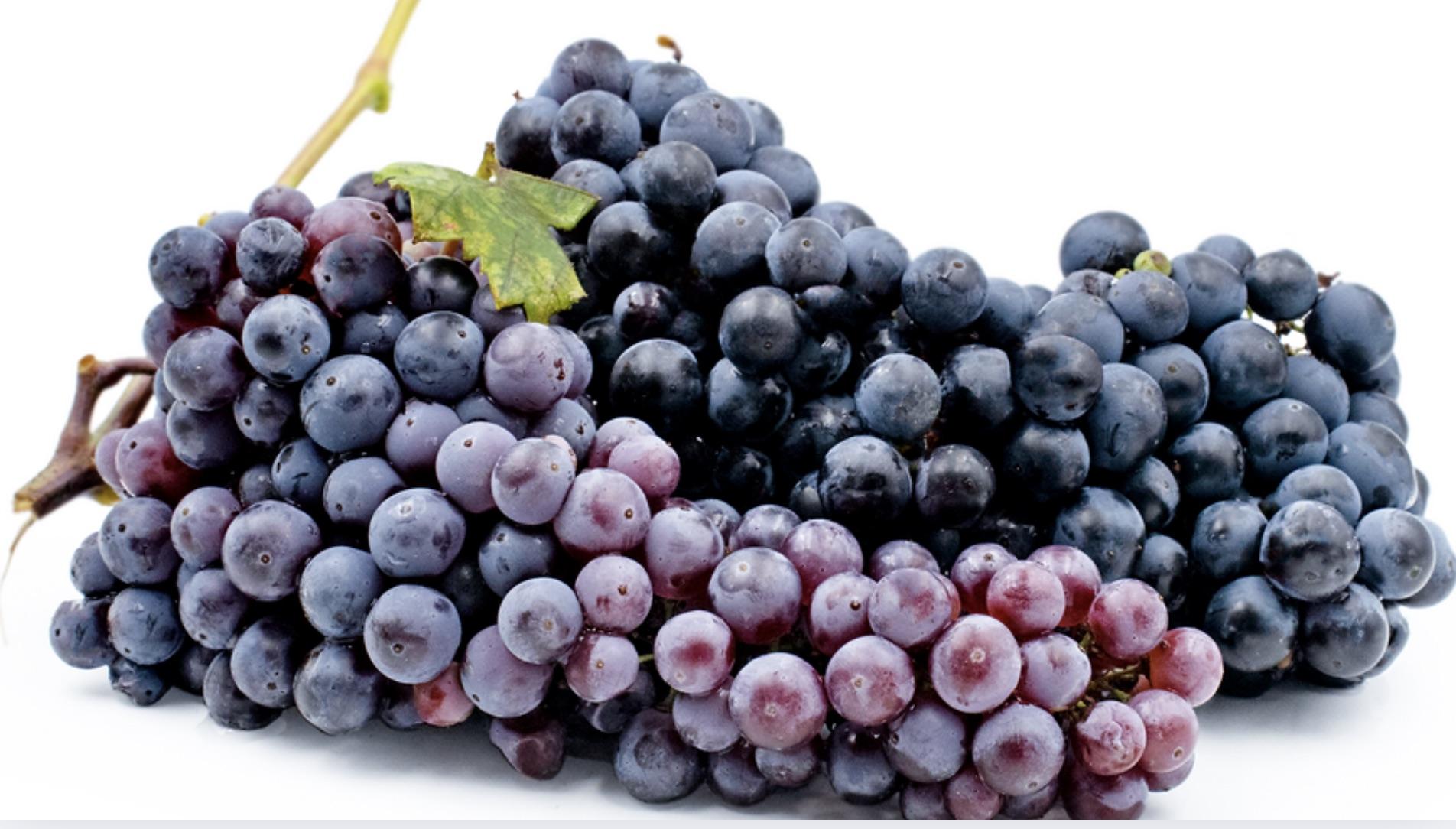
Origin: Native to Croatia, though it is most famously grown in California, USA.
Nutritional benefits: Contains antioxidants like resveratrol, which can help reduce inflammation and improve heart health.
Flavor Profile: Fruity and bold, with deep, jammy flavors of blackberry, plum, and a hint of spice.
4. Zamia Fruit

Origin: Native to tropical regions of the Americas, particularly found in Central and South America.
Nutritional benefits: Contains carbohydrates and healthy fats, providing energy and essential nutrients.
Flavor Profile: Nutty and earthy, with a taste similar to roasted chestnuts or sweet potatoes.
5. Zebra Tomato

Origin: Native to the United States, often cultivated in home gardens.
Nutritional benefits: High in lycopene, which is an antioxidant that may help reduce the risk of chronic diseases.
Flavor Profile: Sweet and tangy, offering a refreshing taste with a balance of sweetness and mild acidity.
6. Zhe Fruit
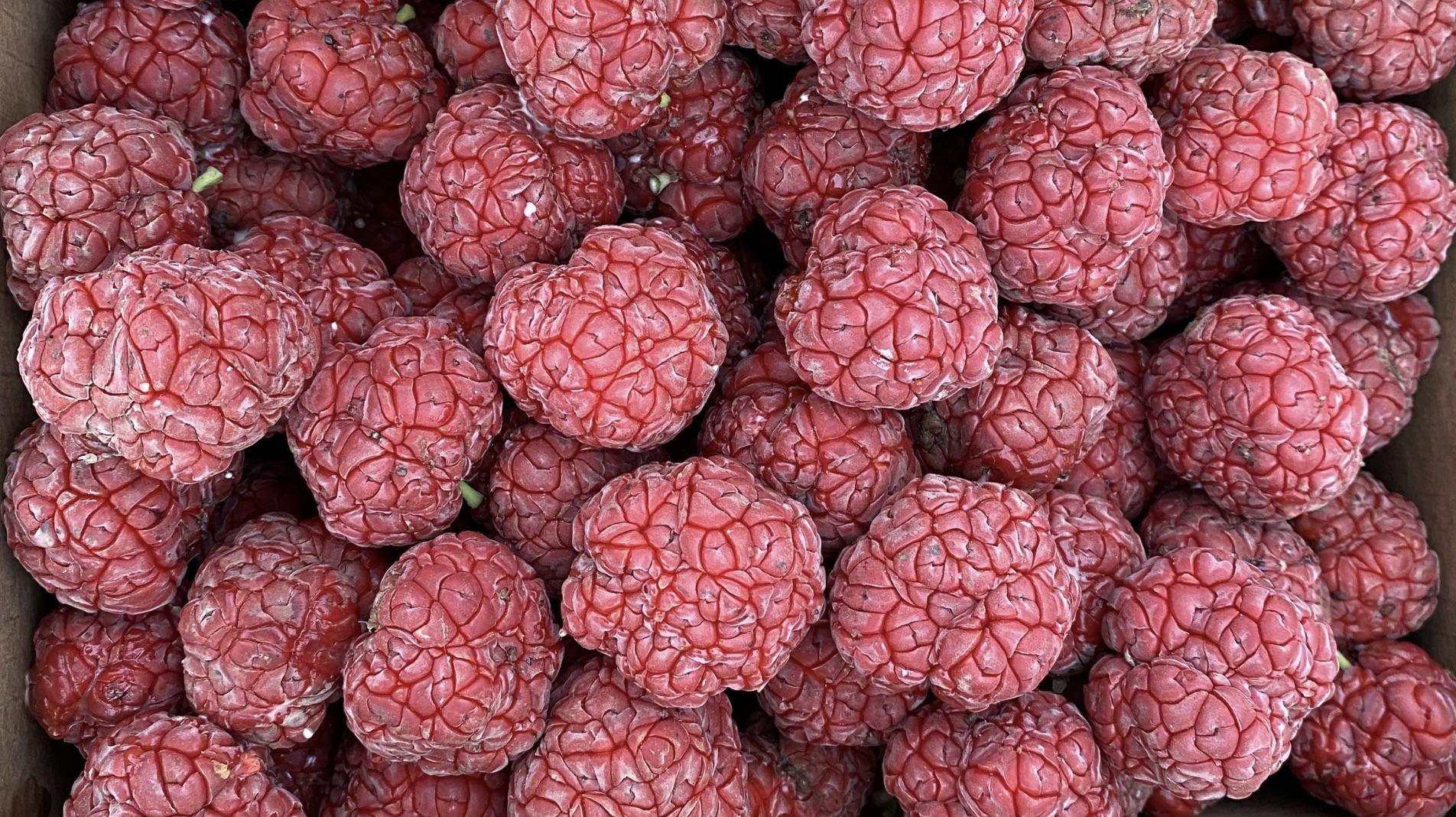
Origin: Native to China, particularly in the southern regions.
Nutritional benefits: Rich in Vitamin C and fiber, promoting healthy skin and digestion.
Flavor Profile: Sweet and floral, with a fragrant, honey-like sweetness.
7. Zamboanga Fruit
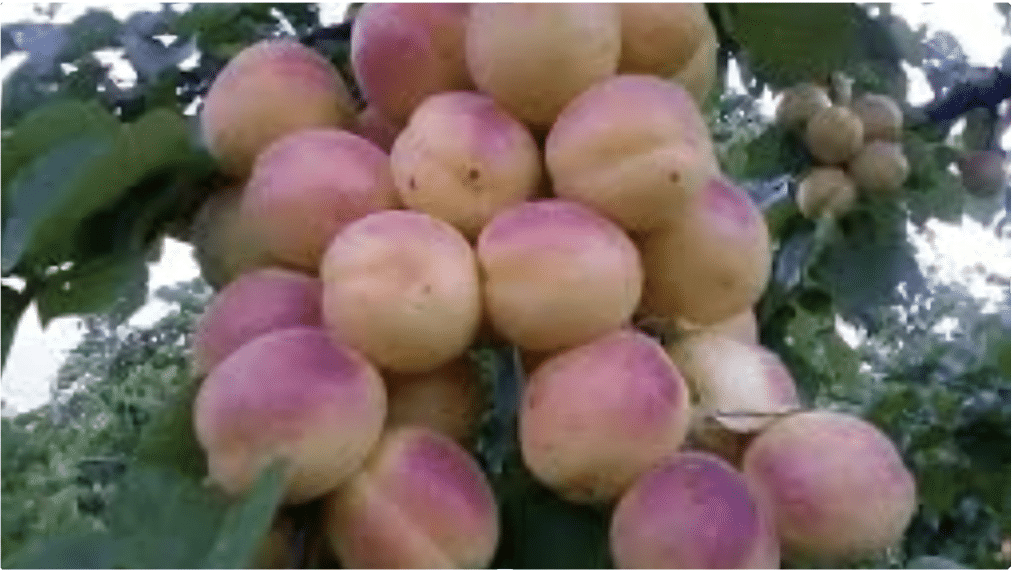
Origin: Native to the Philippines, particularly in the Zamboanga region.
Nutritional benefits: Packed with vitamins A and C, which are essential for maintaining healthy skin and immune function.
Flavor Profile: Sweet and tangy, with a slight sour note that makes it a refreshing treat.
8. Zante Currant
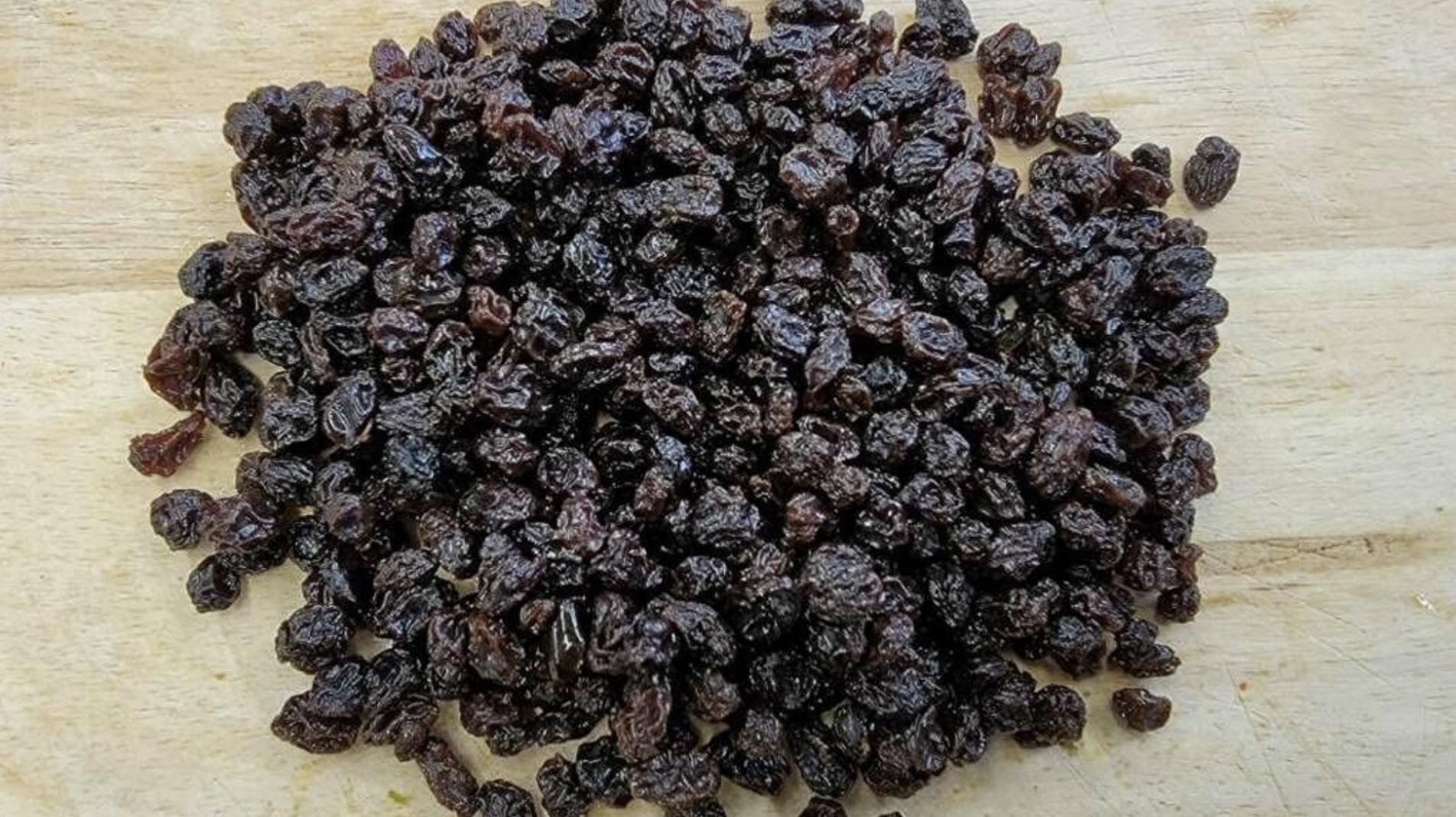
Origin: Native to Greece, specifically the island of Zante, which is where it gets its name.
Nutritional benefits: Rich in iron, potassium, and antioxidants, helping with muscle function and heart health.
Flavor Profile: Sweet and tart, with a deep, raisin-like sweetness.
9. Zucchini Flower (Courgette Flower)

Origin: Native to Central and South America, cultivated globally.
Nutritional benefits: High in Vitamins A and C, which help maintain healthy vision and skin.
Flavor Profile: Light and mild, with a subtle, light taste, this vegetable is often described as mild with floral notes.
10. Zig Zag Vine Fruit
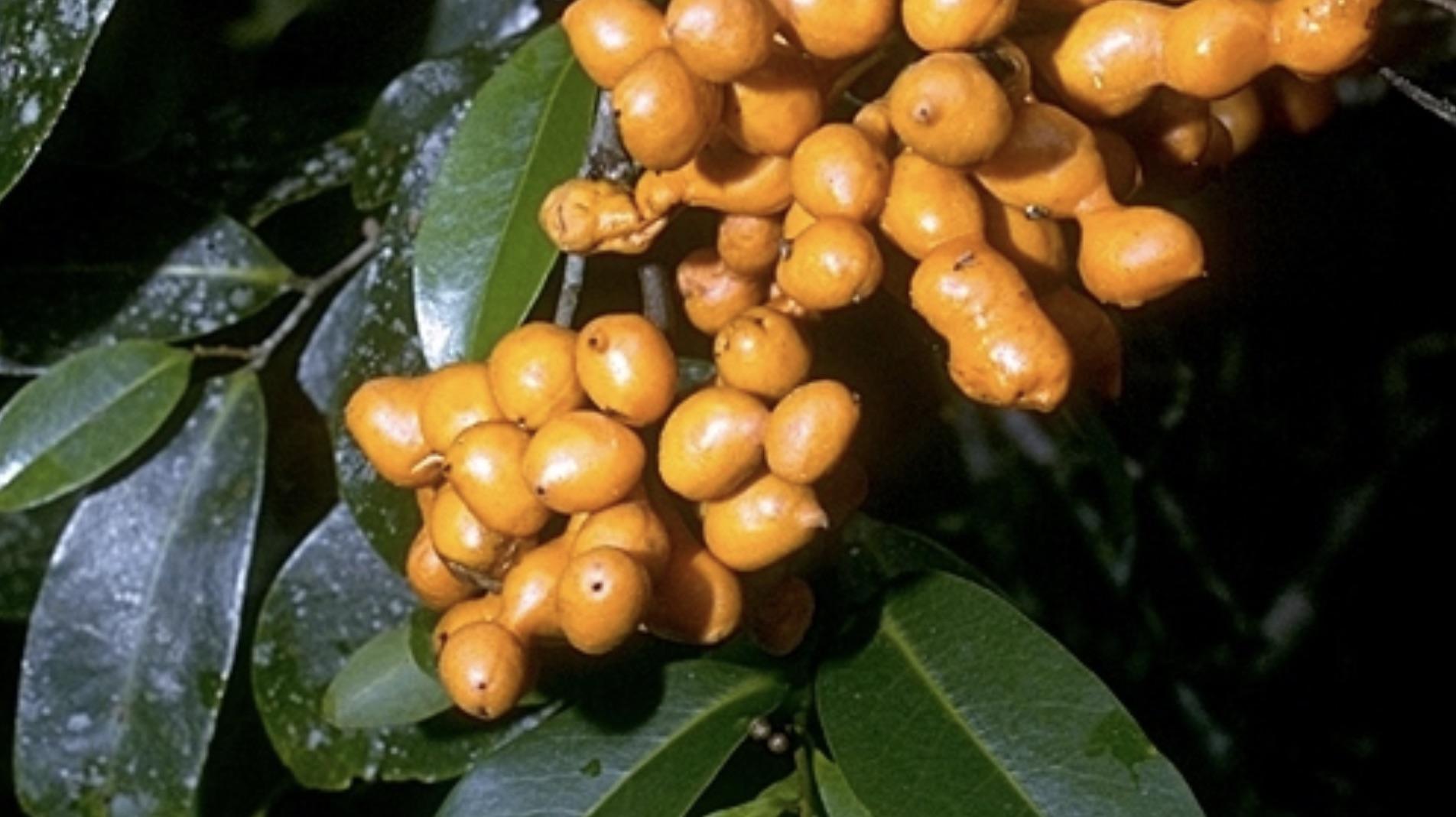
Origin: Native to Southeast Asia, particularly found in tropical regions like Malaysia and Indonesia.
Nutritional benefits: Contains Vitamin C and antioxidants that can help boost immunity and protect against cell damage.
Flavor Profile: Sweet and slightly sour, with a tangy taste and a refreshing, slightly sweet aftertaste.
11. Zau Fruit (Indian Jujube/ Ber Fruit)

Origin: Native to Southeast Asia, particularly in regions like Indonesia.
Nutritional benefits: Rich in Vitamin C and antioxidants, helping to boost the immune system and fight free radicals.
Flavor Profile: Sweet and mildly tangy, with a refreshing, tropical taste.
12. Zanthoxylum Fruit
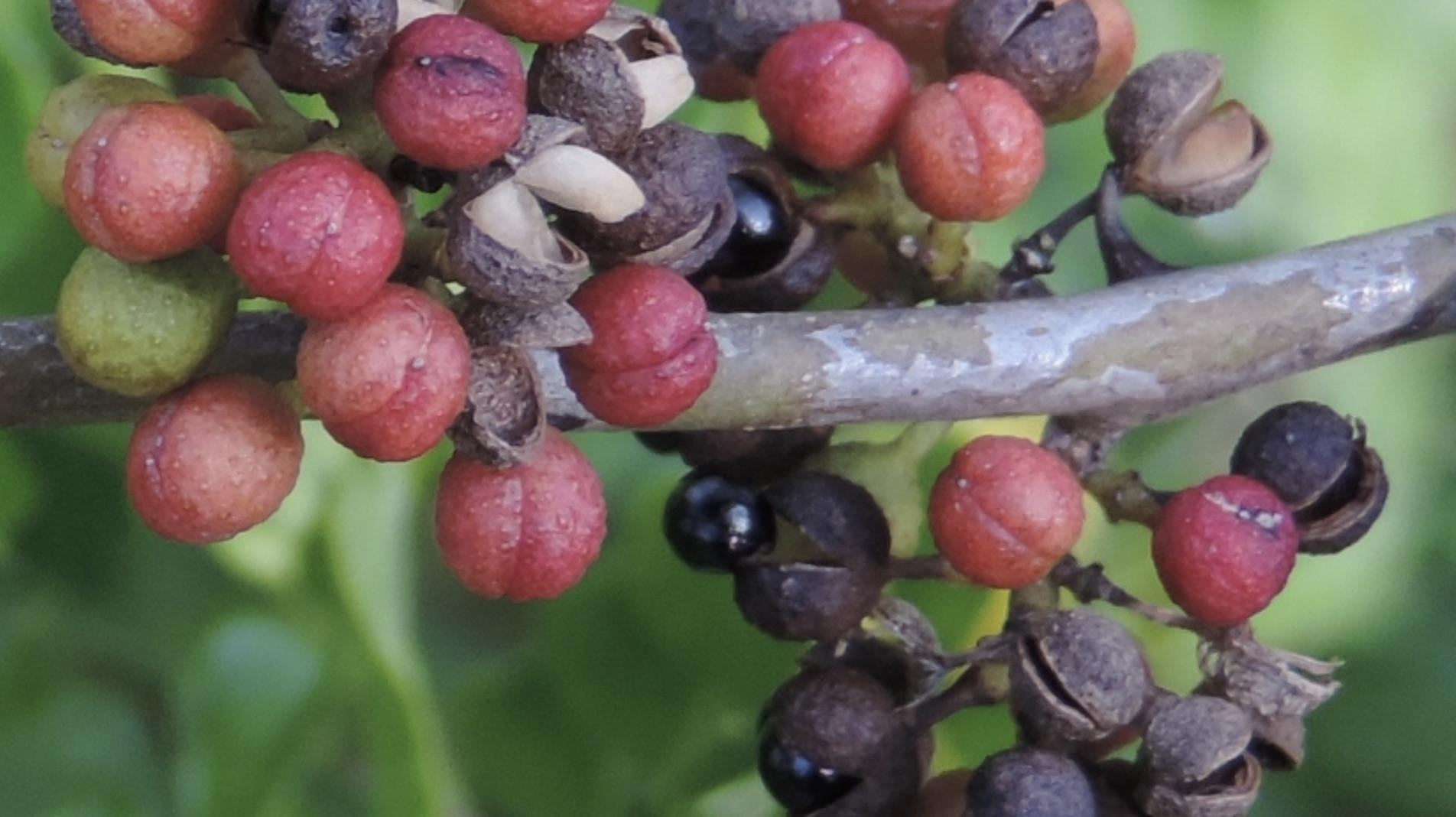
Origin: Native to regions of Asia and Africa, specifically found in tropical climates.
Nutritional benefits: High in antioxidants and essential minerals, aiding in inflammation reduction and immune support.
Flavor Profile: Spicy and peppery, with a citrus-like tang, often used to flavor various fruit dishes.
13. Zebra Plum
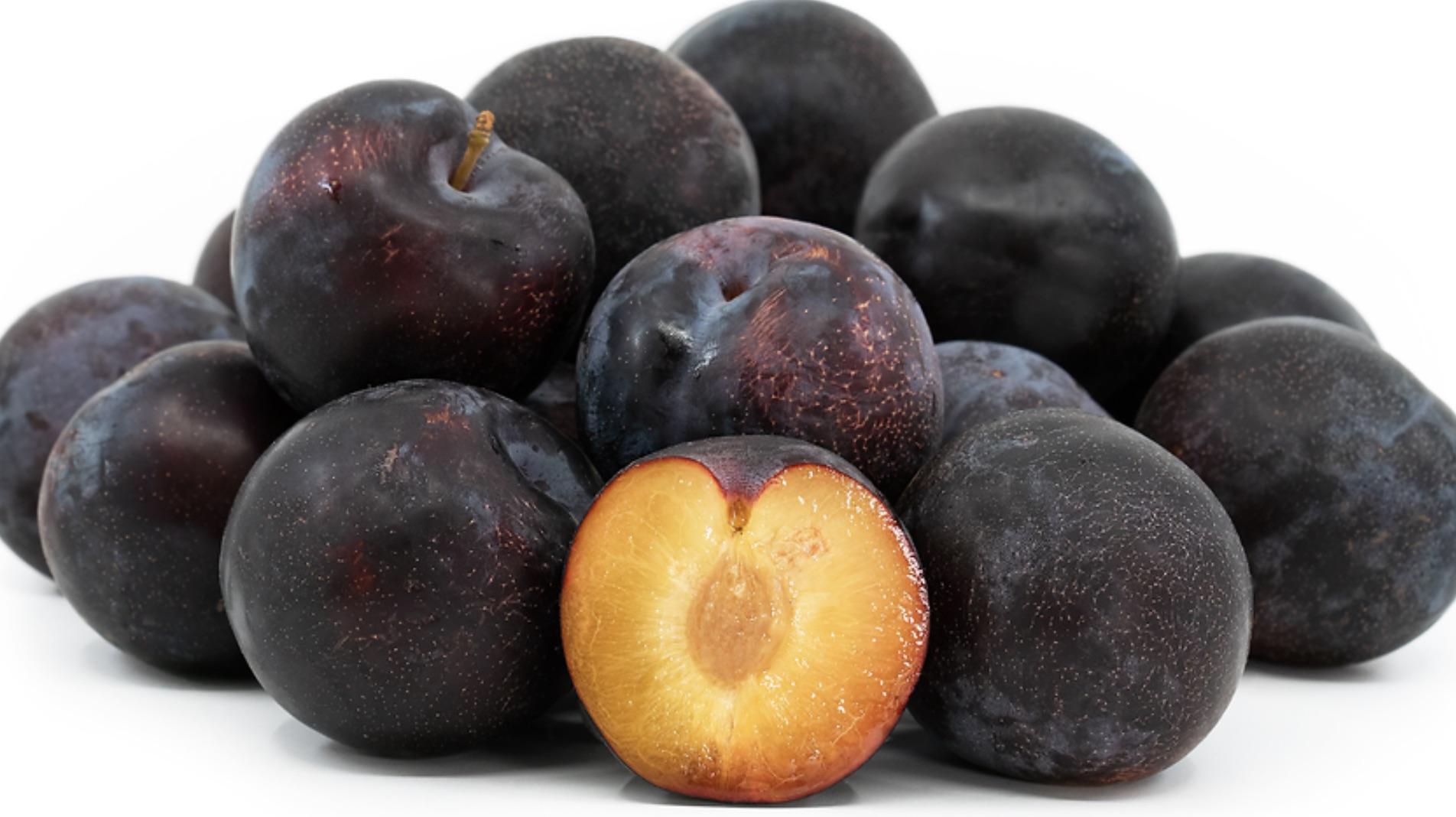
Origin: Native to parts of Asia and Africa, particularly in tropical climates.
Nutritional benefits: Contains Vitamin C, potassium, and antioxidants that help maintain heart health and skin elasticity.
Flavor Profile: Sweet and tart, with a juicy, plum-like texture and a touch of citrus.
14. Zabergau Apple
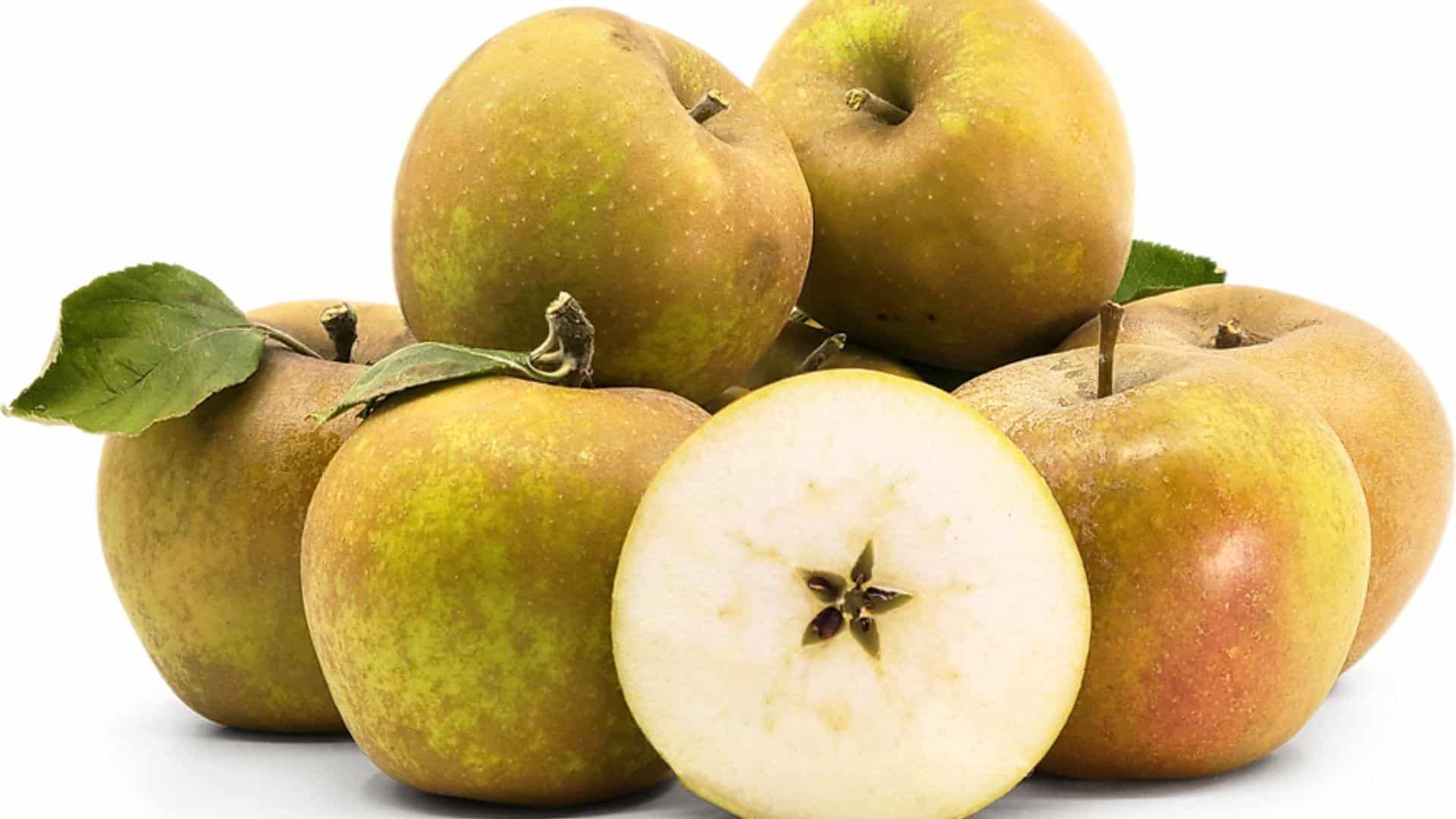
Origin: The Zabergau apple is native to Germany, specifically the region of Zabergau.
Nutritional Benefit: Zabergau apples are rich in dietary fiber and vitamin C, which support digestive health and immune function.
Flavor Profile: Zabergau apples offer a balanced mix of sweet and tart flavors, a slightly crisp texture, and an aromatic fragrance, making them perfect for both fresh eating and baking.
15. Zaban Fruit

Origin: Native to the Middle East, found particularly in Iran and surrounding regions.
Nutritional benefits: Contains Vitamin C, fiber, and antioxidants that support immune health and digestion.
Flavor Profile: It is sweet and aromatic, with a floral, exotic note that makes it ideal for traditional cooking.
16. Zambia Passionfruit

Origin: Zambia passionfruit is native to Zambia and other parts of Southern Africa.
Nutritional Benefit: Zambia passionfruit is high in vitamin C and antioxidants, helping boost the immune system and improve skin health.
Flavor Profile: This passionfruit has a tangy, tart flavor with sweet, floral notes. Its juicy and slightly grainy texture bursts with citrus-like zest.
17. Zucchini Squash

Origin: Native to Central and South America, especially in Mexico.
Nutritional benefits: High in vitamins A and C, helping to support immune health and vision.
Flavor Profile: It is mild and slightly sweet, with a light, fresh flavor that is versatile for many dishes.
18. Zapote (Sapodilla)
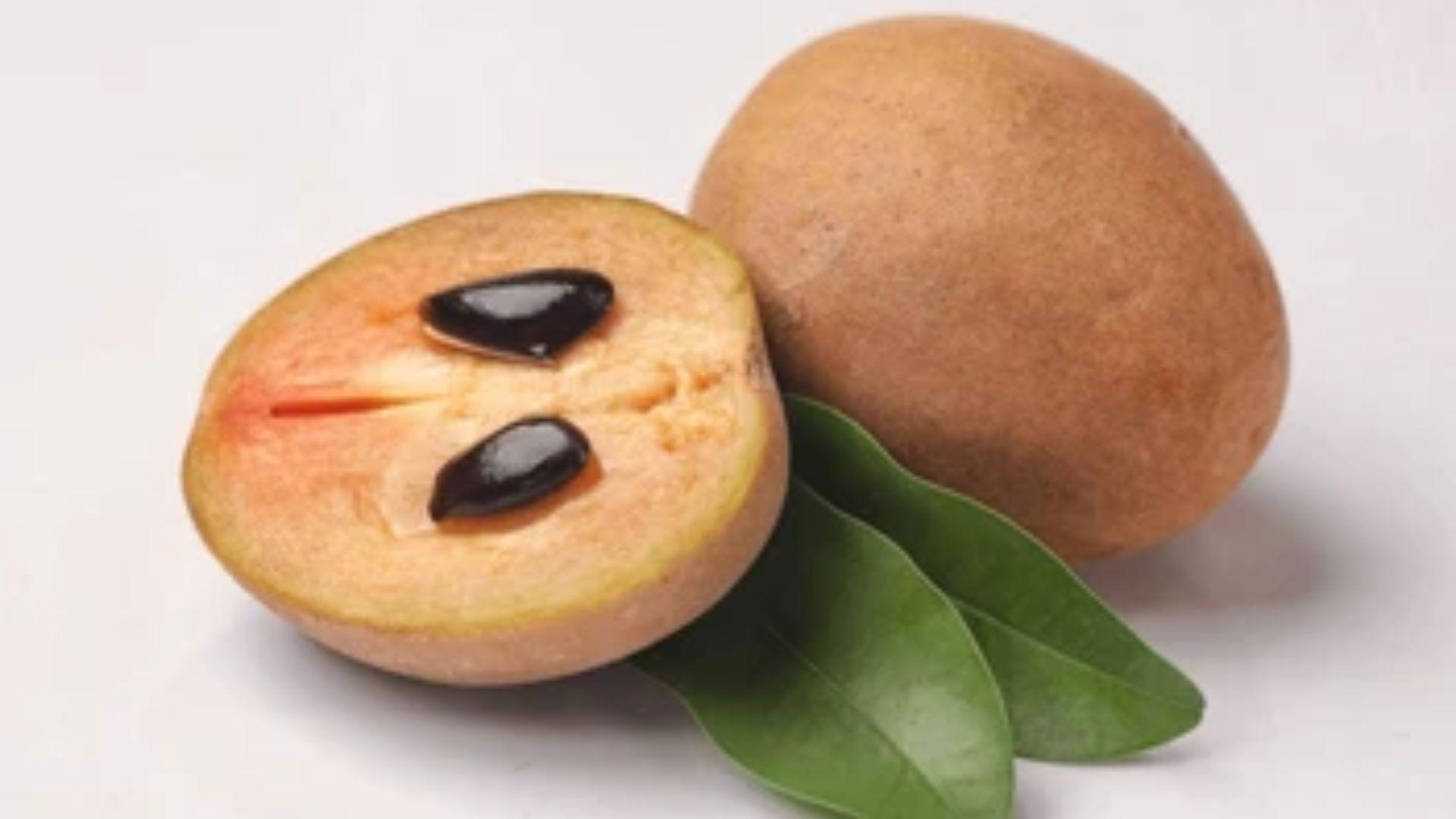
Origin: Zapote, also known as Sapodilla, is native to Central America and parts of Mexico.
Nutritional Benefit: Rich in fiber and vitamins, Zapote helps with digestion and provides energy through its natural sugars.
Flavor Profile: Zapote’s flavor is sweet and malty, with hints of brown sugar and pear. It offers a creamy, grainy texture that is often likened to a sweet potato or pear.
19. Ziziphus Mauritiana
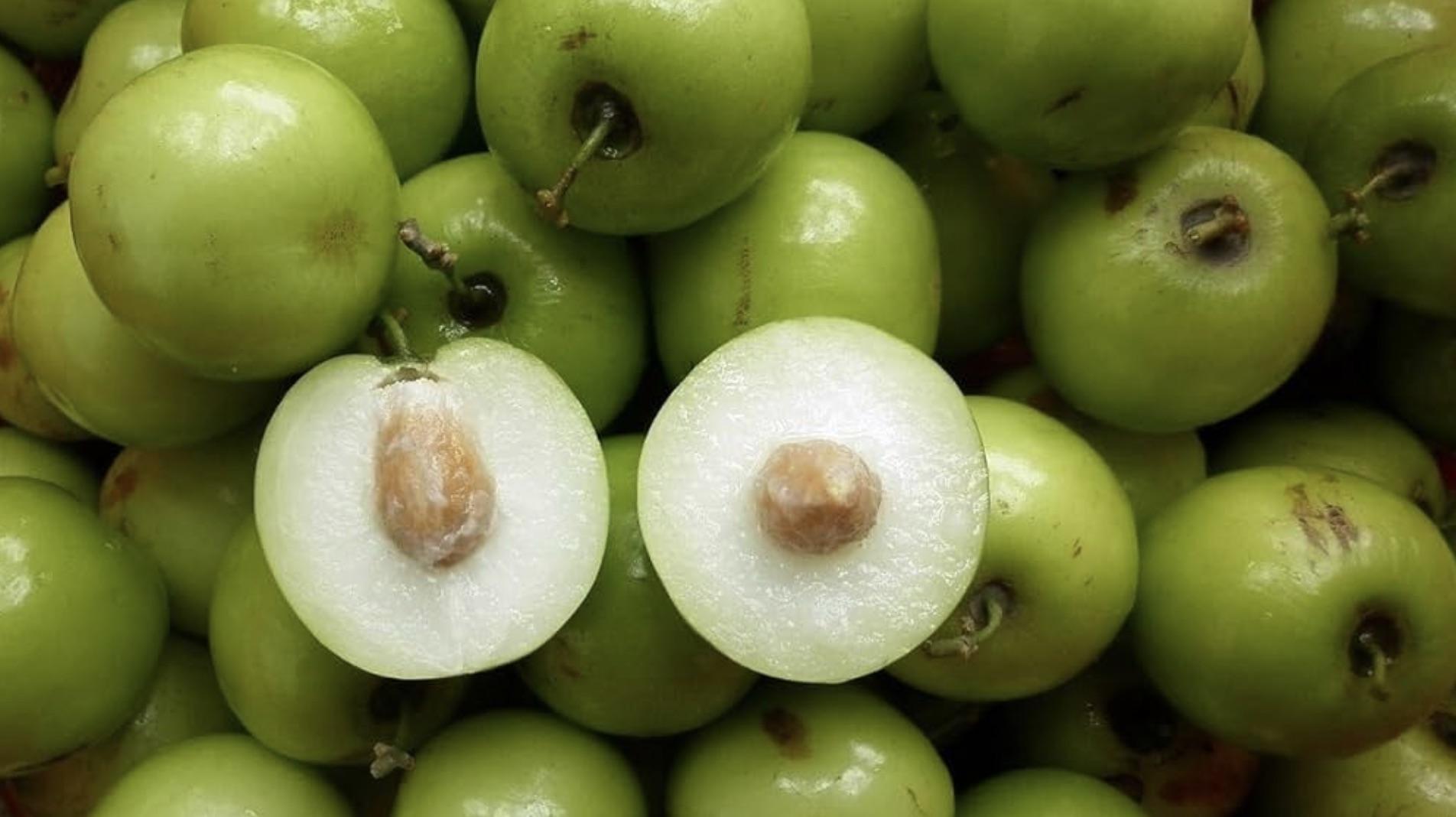
Origin: Native to South Asia and parts of the Arabian Peninsula.
Nutritional benefits: It contains high levels of Vitamin C, antioxidants, and essential minerals, which support skin health and digestion.
Flavor Profile: Sweet and slightly tart, with a firm texture similar to dates when dried.
20. Zarzamora (Blackberry)
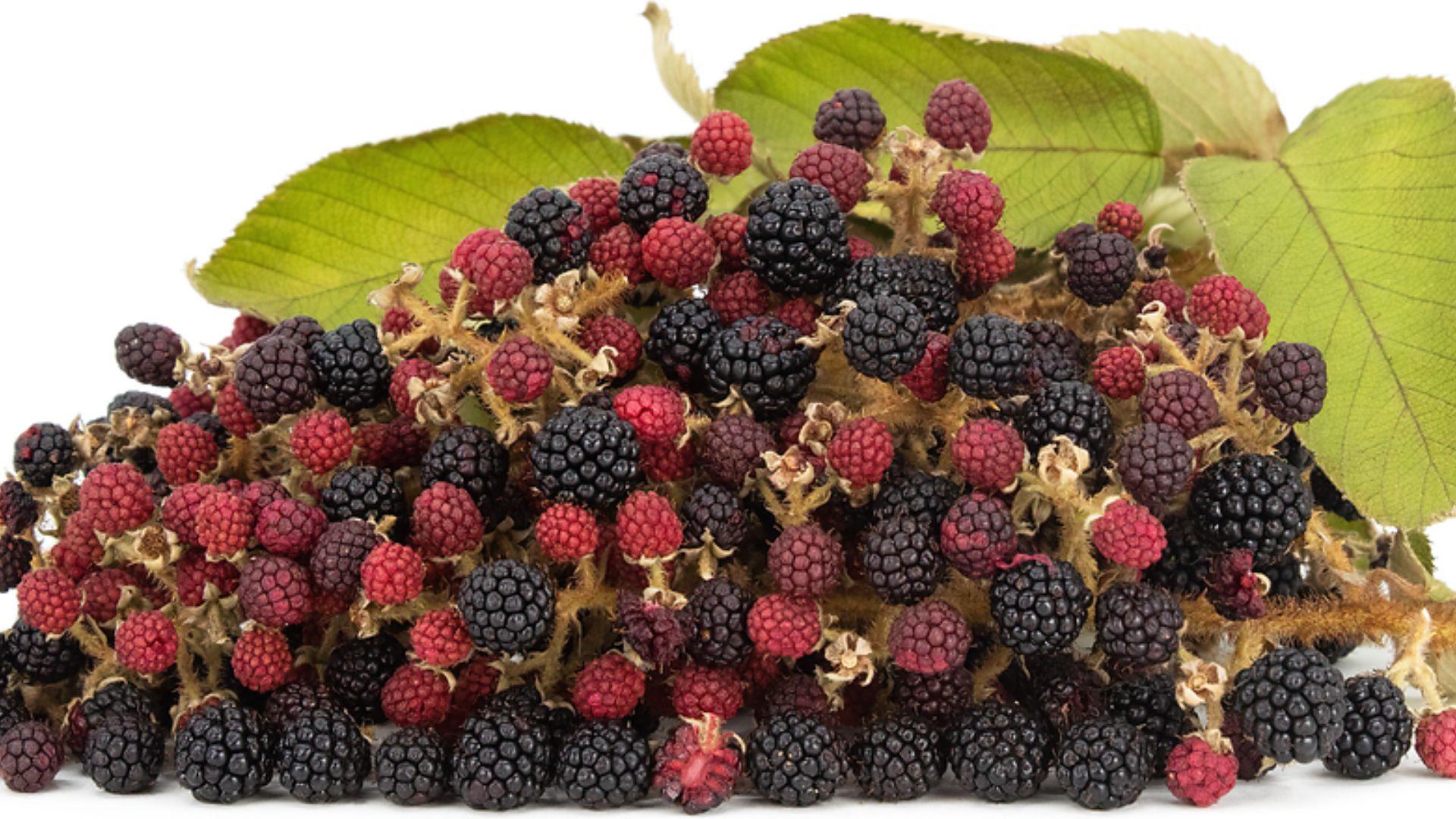
Origin: Zarzamora, or blackberry, is native to North America and parts of Europe.
Nutritional Benefit: Blackberries are rich in vitamin C, fiber, and antioxidants, which support immunity and promote digestive health.
Flavor Profile: Blackberries have a balanced combination of sweetness and tartness, with a deep berry flavor and a juicy, slightly tangy finish that provides a refreshing taste.
21. Ziziphus Spina-Christi (Christ’s Thorn Jujube)
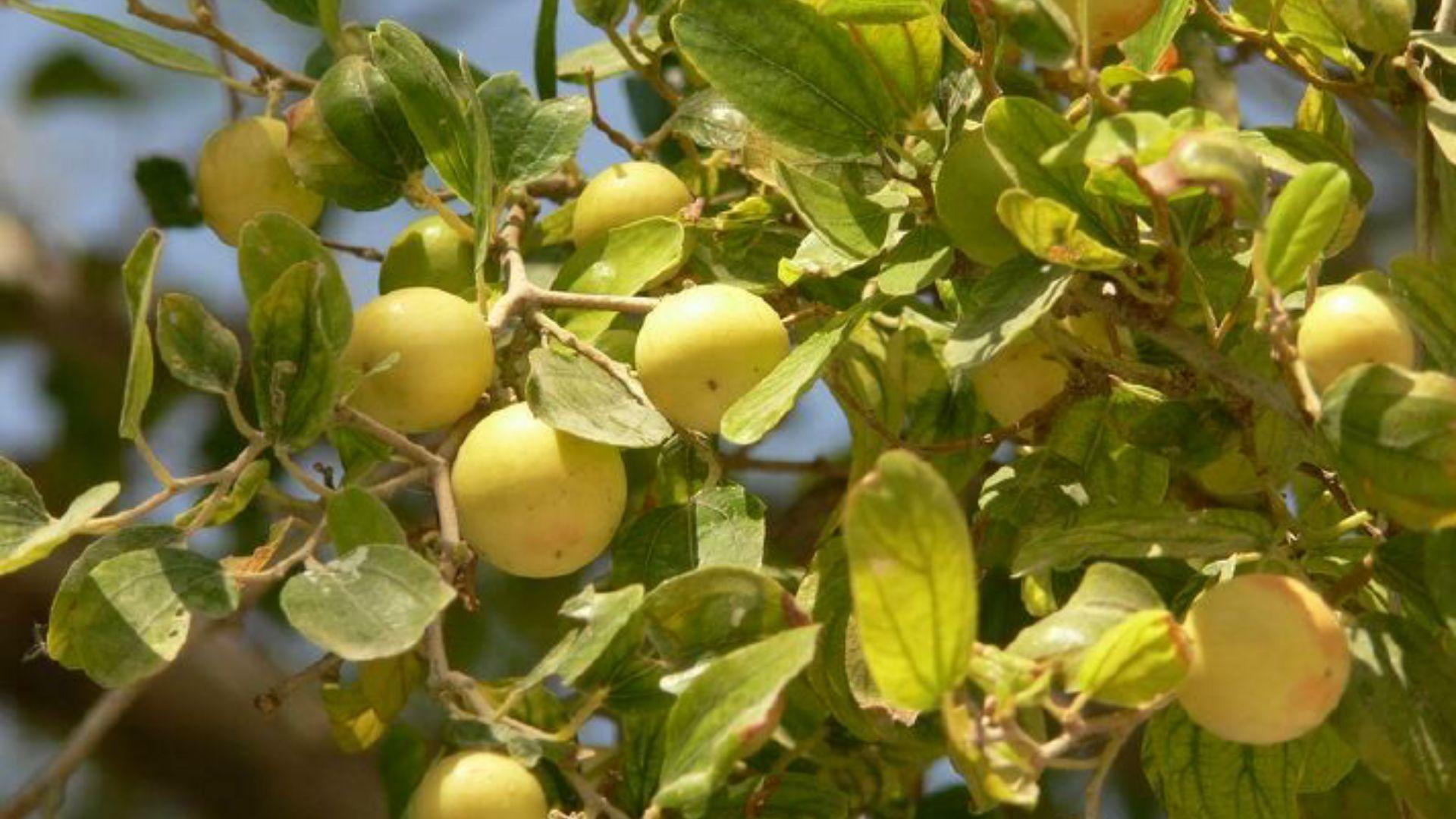
Origin: Native to parts of the Middle East and Northern Africa, Ziziphus Spina-Christi is found in dry, desert regions.
Nutritional Benefit: This fruit is packed with antioxidants and vitamin C, helping to reduce inflammation and boost the immune system.
Flavor Profile: Christ’s Thorn Jujube has a sweet, mildly tangy flavor, often compared to dates. Its chewy texture intensifies when dried.
22. Zulu Pear
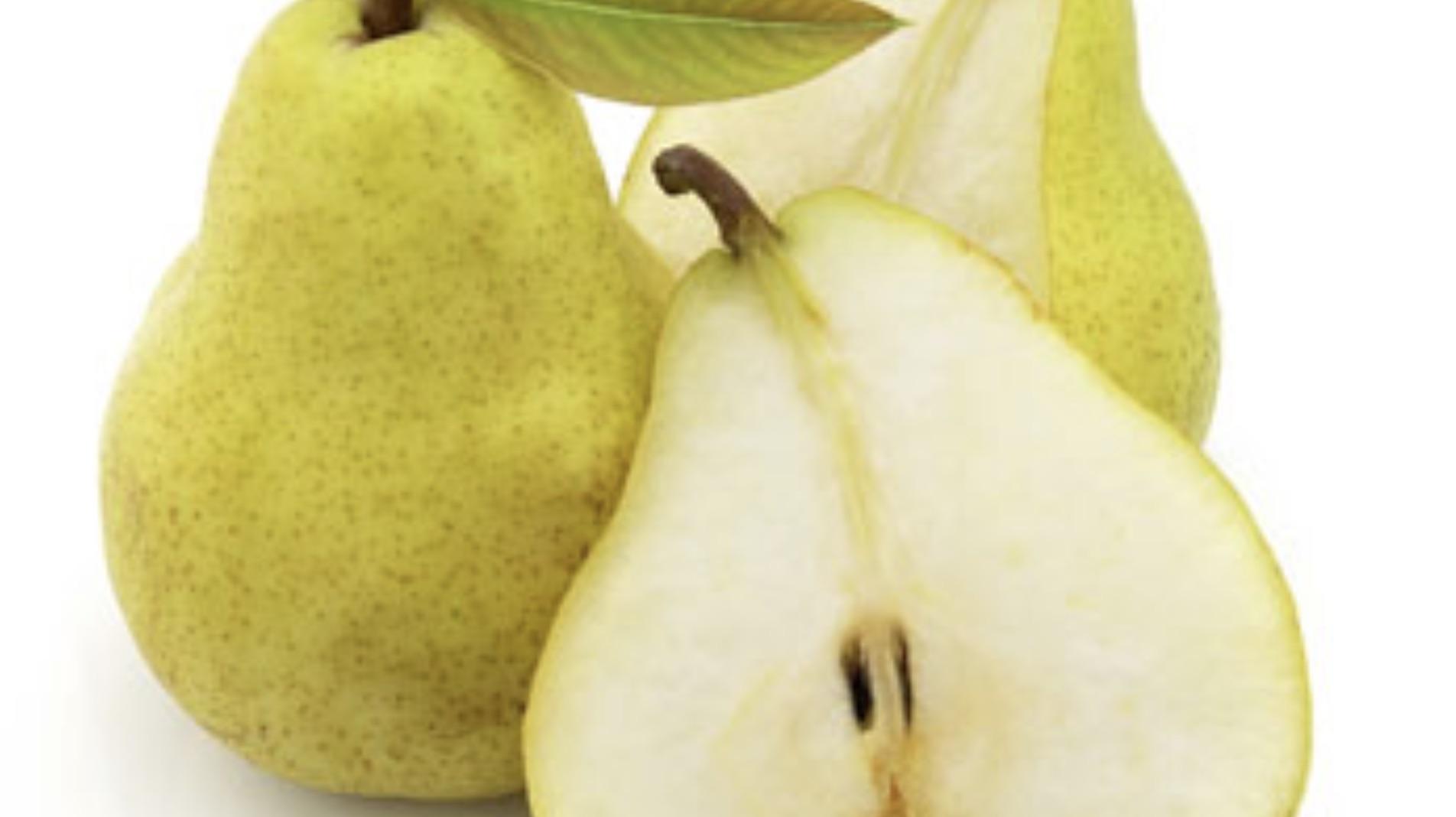
Origin: Native to southern Africa, particularly in regions of South Africa.
Nutritional benefits: Contains Vitamin C, fiber, and antioxidants that help in promoting heart health and digestion.
Flavor Profile: Sweet and juicy, with a soft texture and a mildly floral taste.
23. Zibibbo (Muscat of Alexandria)

Origin: Zibibbo is native to the Mediterranean, particularly in Italy and other southern European regions.
Nutritional Benefit: Zibibbo grapes are high in antioxidants, which help protect against oxidative stress and promote overall health.
Flavor Profile: Zibibbo grapes have a distinct floral sweetness with hints of honey, citrus, and muscat, providing a rich and aromatic flavor that is both refreshing and tasteful.
24. Zill Mango
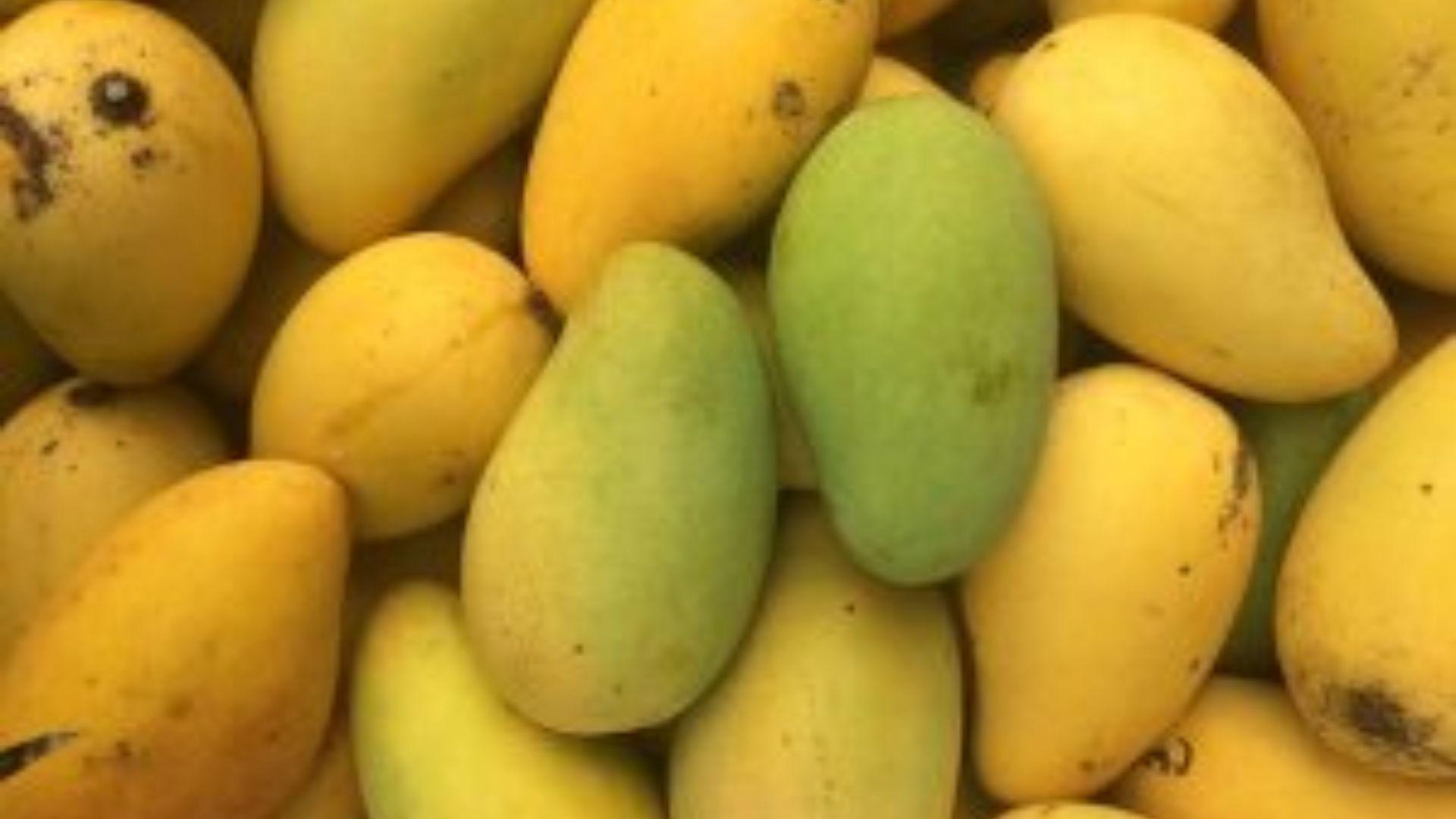
Origin: The Zill mango is a variety of mango originating from Florida, USA.
Nutritional Benefit: Zill mangoes are rich in vitamin C and vitamin A, which support skin health and improve vision.
Flavor Profile: Zill mangoes offer a rich, tropical sweetness with hints of peach and pineapple. Their smooth, buttery texture makes them extremely juicy and satisfying.
25. Zalzalak (Hawthorn Fruit)

Origin: Zalzalak, also known as hawthorn fruit, is native to Europe, North America, and parts of Asia.
Nutritional Benefit: Hawthorn fruit is known for its cardiovascular benefits, as it helps improve circulation and blood pressure.
Flavor Profile: Hawthorn fruit has a tart, slightly astringent flavor with earthy, floral notes. It’s somewhat sour when raw, but its sweetness intensifies when cooked or made into preserves.
Summing It Up
Fruits with Z come from many different places around the world, and each one brings special flavors and health benefits.
If it’s the sweet Ziziphus fruit from China or the tangy Zambia passionfruit from Africa, there’s something for everyone to enjoy.
These fruits make great snacks and can be added to many recipes. They contain vitamins and antioxidants that help fight sickness and keep the body healthy.
The next time you’re at the grocery store or farmer’s market, look for these special fruits to try something new.
Zoom into the world of Z fruits—your taste buds will thank you!
If you’re interested in more informative education & leaning content, feel free to click here and explore other blogs that you might enjoy!













